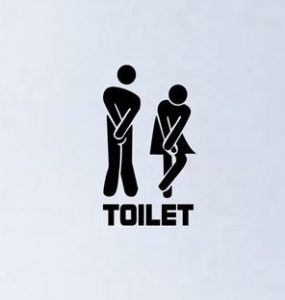Devices for Dignity is pleased to announce the launch of its 2012 Innovation Competition.
This year’s competition, which has potential prize funds of up to £45,000, is focused on the theme of Urinary Continence Management. The prize money is being offered to help accelerate the development of healthcare devices which addresses a problem that continues to affect millions of people around the UK.
Up to three winners will each be awarded £15,000 and entrants will be given the opportunity to work with D4D’s national experts’ network, resources and specialist clinicians, bridging the gap between initial concepts, securing grant funding and attracting early stage investment.
D4D is accepting competition entries in three different areas:
Tackling continence for people with dementia
Continence problems can arise as a result of dementia or may be harder to manage when a person has dementia. This can have a significant impact on carers as well as the sufferer. Accepted continence best practice may not be achievable with dementia patients.
We are looking for novel solutions that:
- utlilise stimuli that can be recognised by people with dementia to assist them in managing their continence needs
- older-person friendly devices that can be used by patient or carer to alert them to continence needs
Helping children and/or young adults with continence problems
Children and young adults find can continence difficulties extremely embarrassing. Although there are an increasing number of products designed specifically for children or young adults, frequently adult products are used which may not be as effective or acceptable.
We are looking for novel solutions that:
- use child or young person friendly features to help diagnose, manage or treat childhood incontinence
- address continence issues of children or young people who are in a wheelchair (e.g. add-on features)
- make the device or product a ‘must have’ rather than a medical device to reduce embarrassment
Self-help tools for prevention or management of urinary incontinence
Urinary incontinence is more prevalent in older people, but the causes are often due to events in earlier life, e.g. difficulties in childbirth, poor bladder control habits, strenuous/impact exercise such as weightlifting or running, menopause, life-style choices such as drinking caffeinated drinks. Pelvic floor exercises (Kegel) are known to bring about improvement for women and men with mild or moderate incontinence and can be beneficial at any age. However, advice is often only sought once symptoms become intolerable and thus harder to manage or treat, and, once treated, compliance with pelvic floor exercise can be a problem.
We are looking for novel solutions that:
- will enable individuals to identify continence problems early, preferably understanding the risks and preventing them before incontinence occurs
- will encourage wider uptake and knowledge of pelvic floor exercises
- will encourage compliance and maintenance of pelvic floor
The awards are open to UK healthcare businesses, healthcare professionals, academics and individuals who are innovators and inventors, as well as users, patients and carers.
Solutions must have a product or device as the intended output. The product can be software so long as it is incorporated into a device. Solutions may cross over categories.
The winner(s) will need to demonstrate the potential for significant measurable decrease in NHS costs and/or patient benefit, while judges will also consider the wider social impact of the idea, including its contribution to dignity and independence.
Professor Wendy Tindale, D4D’s Clinical Director, said: “This prize will provide medical technology innovators with the springboard they need to develop an idea into something tangible – and ultimately, the product or device will have the potential to make a huge difference to large sections of the population who have to live with this debilitating problem.”
The winners of the award(s) will be announced at Bristol Urological Institute’s 19th Annual Scientific Meeting at Watershed Conference Centre on November 28.


